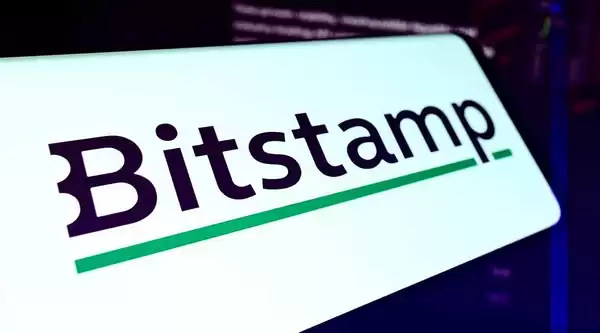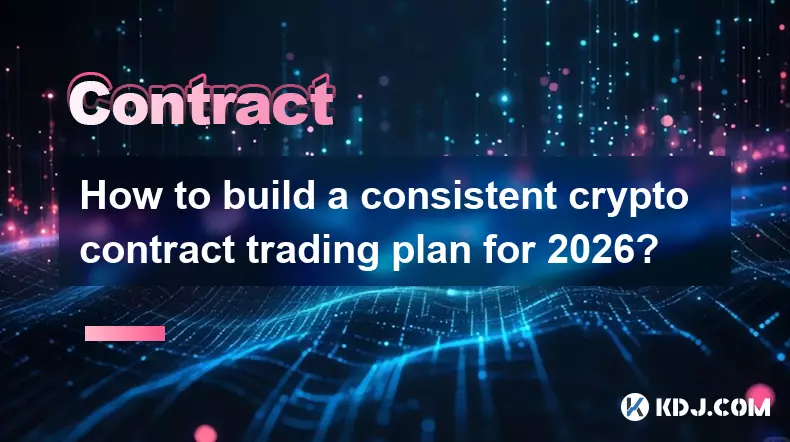-
 bitcoin
bitcoin $87959.907984 USD
1.34% -
 ethereum
ethereum $2920.497338 USD
3.04% -
 tether
tether $0.999775 USD
0.00% -
 xrp
xrp $2.237324 USD
8.12% -
 bnb
bnb $860.243768 USD
0.90% -
 solana
solana $138.089498 USD
5.43% -
 usd-coin
usd-coin $0.999807 USD
0.01% -
 tron
tron $0.272801 USD
-1.53% -
 dogecoin
dogecoin $0.150904 USD
2.96% -
 cardano
cardano $0.421635 USD
1.97% -
 hyperliquid
hyperliquid $32.152445 USD
2.23% -
 bitcoin-cash
bitcoin-cash $533.301069 USD
-1.94% -
 chainlink
chainlink $12.953417 USD
2.68% -
 unus-sed-leo
unus-sed-leo $9.535951 USD
0.73% -
 zcash
zcash $521.483386 USD
-2.87%
How to trade Bitstamp contract
To successfully navigate the complexities of Bitstamp contract trading, follow these step-by-step instructions, covering account creation, funding, contract selection, order placement, position management, and trade evaluation.
Nov 12, 2024 at 09:02 am

Navigating the world of contract trading on Bitstamp can be a daunting task for both experienced and novice traders alike. To guide you through this complex landscape, we delve into a comprehensive step-by-step tutorial that covers the intricacies of Bitstamp contract trading.
Step 1: Understanding Bitstamp ContractsBitstamp contracts, also known as perpetual swaps, are derivative instruments that allow traders to speculate on the future price of cryptocurrencies without the need for physical delivery. These contracts track the underlying index price and enable traders to employ leverage, amplifying both potential gains and losses.
Key Features of Bitstamp Contracts:- No Expiry: Unlike traditional futures contracts, Bitstamp contracts do not have an expiry date, providing traders with the flexibility to hold their positions indefinitely.
- Leverage: Traders can utilize leverage to amplify their trading positions, providing increased exposure to market movements. However, it is crucial to exercise caution as excessive leverage can amplify potential losses.
- Funding Rate: Contract holders periodically pay or receive a funding rate, a mechanism that aligns the contract price with the spot market.
Before embarking on your Bitstamp contract trading journey, you must create an account. The process is straightforward and requires personal information, verification of identity, and a deposit of funds.
Step 3: Funding Your AccountTo begin trading, you need to fund your Bitstamp account. The platform supports a range of funding options, including bank transfers, credit/debit cards, and cryptocurrency deposits. Select the most convenient method and follow the instructions provided.
Step 4: Selecting a ContractBitstamp offers a wide variety of contract markets, each representing different cryptocurrencies. Choose a contract that aligns with your trading strategy and risk appetite. Consider factors such as market liquidity, volatility, and your understanding of the underlying asset.
Step 5: Placing an OrderOnce you have selected a contract, it is time to place your order. Bitstamp provides various order types to accommodate different trading strategies:
- Limit Order: Specify a price at which you want to execute your order. The order will only be executed once the market price reaches the specified limit.
- Market Order: Execute your order at the current market price. Market orders are filled immediately but may be subject to slippage, especially during periods of high volatility.
After placing an order, you can monitor and manage your open positions through the Bitstamp trading platform. You can adjust your leverage, add or reduce positions, and set stop-loss and take-profit orders to manage your risk.
Step 7: Closing Your PositionTo exit your trade, you need to close your position. This can be done by placing an order in the opposite direction of your initial order. For example, if you opened a long position, you would need to place a sell order to close it.
Step 8: Evaluating Your TradesRegularly evaluate your trades to identify patterns and make adjustments to your trading strategy. Analyze your wins and losses, identifying areas for improvement and optimizing your risk management approach.
Disclaimer:info@kdj.com
The information provided is not trading advice. kdj.com does not assume any responsibility for any investments made based on the information provided in this article. Cryptocurrencies are highly volatile and it is highly recommended that you invest with caution after thorough research!
If you believe that the content used on this website infringes your copyright, please contact us immediately (info@kdj.com) and we will delete it promptly.
- Ilocos Norte's Vibrant Festival Immortalized on New P100 Coin by BSP
- 2026-02-02 21:55:01
- The Warsh Effect: Bitcoin Takes a Dive as Fed Nominee Sparks Crypto Wipeout
- 2026-02-02 22:05:01
- Your Pocket Change Could Be Gold: Spotting the Valuable £2 Coin Error
- 2026-02-02 22:40:02
- ZAMA Token Launches Globally, Ushering in a New Era for Confidential Blockchains
- 2026-02-02 22:40:02
- LBank Elevates DeFi with GOLDEN FI (GLINK) Listing, Bridging Real-World Assets to the Blockchain
- 2026-02-02 21:30:02
- US Investors Pull Billions from Crypto Funds Amidst Shifting Sentiment, CoinShares Report Highlights
- 2026-02-02 22:35:00
Related knowledge

How to close a crypto contract position manually or automatically?
Feb 01,2026 at 11:19pm
Manual Position Closure Process1. Log into the trading platform where the contract is active and navigate to the 'Positions' or 'Open Orders' tab. 2. ...

How to understand the impact of Bitcoin ETFs on crypto contracts?
Feb 01,2026 at 04:19pm
Bitcoin ETFs and Market Liquidity1. Bitcoin ETFs introduce institutional capital directly into the spot market, increasing order book depth and reduci...

How to trade DeFi contracts during the current liquidity surge?
Feb 01,2026 at 07:00am
Understanding Liquidity Dynamics in DeFi Protocols1. Liquidity surges in DeFi are often triggered by coordinated capital inflows from yield farming in...

How to use social trading to copy crypto contract experts?
Feb 02,2026 at 07:40am
Understanding Social Trading Platforms1. Social trading platforms integrate real-time market data with user interaction features, enabling traders to ...

How to build a consistent crypto contract trading plan for 2026?
Feb 02,2026 at 10:59pm
Defining Contract Specifications1. Selecting the underlying asset requires evaluating liquidity depth, historical volatility, and exchange support acr...

How to trade micro-cap crypto contracts with high growth potential?
Feb 01,2026 at 02:20pm
Understanding Micro-Cap Crypto Contracts1. Micro-cap crypto contracts refer to derivative instruments tied to tokens with market capitalizations under...

How to close a crypto contract position manually or automatically?
Feb 01,2026 at 11:19pm
Manual Position Closure Process1. Log into the trading platform where the contract is active and navigate to the 'Positions' or 'Open Orders' tab. 2. ...

How to understand the impact of Bitcoin ETFs on crypto contracts?
Feb 01,2026 at 04:19pm
Bitcoin ETFs and Market Liquidity1. Bitcoin ETFs introduce institutional capital directly into the spot market, increasing order book depth and reduci...

How to trade DeFi contracts during the current liquidity surge?
Feb 01,2026 at 07:00am
Understanding Liquidity Dynamics in DeFi Protocols1. Liquidity surges in DeFi are often triggered by coordinated capital inflows from yield farming in...

How to use social trading to copy crypto contract experts?
Feb 02,2026 at 07:40am
Understanding Social Trading Platforms1. Social trading platforms integrate real-time market data with user interaction features, enabling traders to ...

How to build a consistent crypto contract trading plan for 2026?
Feb 02,2026 at 10:59pm
Defining Contract Specifications1. Selecting the underlying asset requires evaluating liquidity depth, historical volatility, and exchange support acr...

How to trade micro-cap crypto contracts with high growth potential?
Feb 01,2026 at 02:20pm
Understanding Micro-Cap Crypto Contracts1. Micro-cap crypto contracts refer to derivative instruments tied to tokens with market capitalizations under...
See all articles










































































